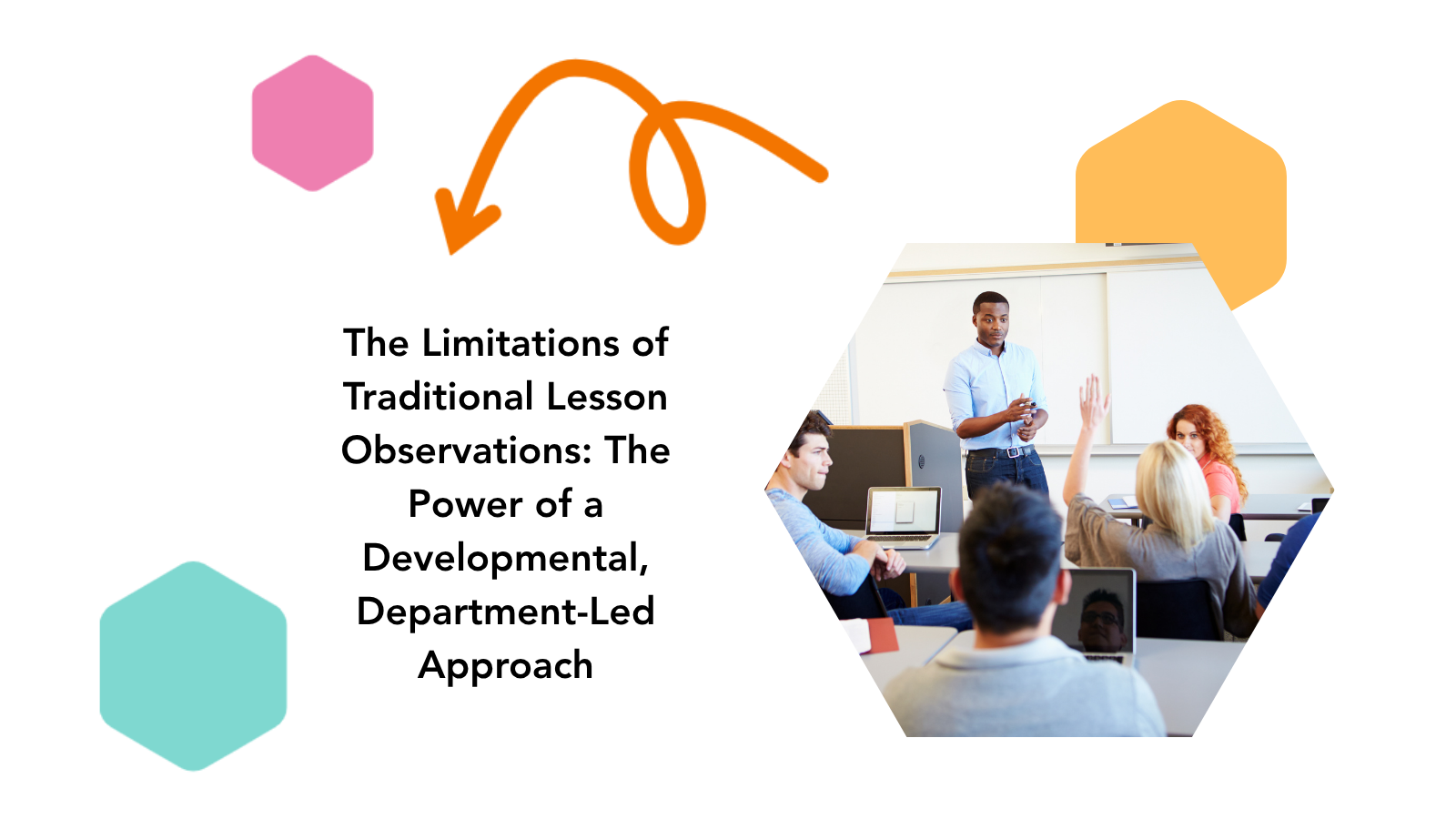Beyond the Classroom Door: The Shift to Developmental Monitoring in Education


For decades, the bedrock of teacher monitoring in education has been the traditional lesson observation. A leader sits at the back of the classroom, meticulously recording a commentary of the lesson, noting strengths and areas for development, before delivering feedback that can often feel like a judgment rather than a guide. While well-intentioned, this model frequently fails to capture the full picture of a teacher's practice and can foster anxiety rather than growth.
However, a significant and welcome shift is underway. Many progressive educational institutions are shifting away from single-point-in-time lesson assessments towards a more holistic and developmental approach. Instead of focusing solely on individual lessons, monitoring is now centred on the broader performance of a subject, department, or faculty. The crucial next step? The subject, department, or faculty lead then takes ownership of following up on actions with individual staff members, creating a truly developmental cycle.
While a snapshot, traditional lesson observations often miss:
Context: A single lesson might not reflect a teacher's overall planning, curriculum knowledge, or rapport with students over time.
Authenticity: Teachers can feel immense pressure, leading to a focus on "performance" rather than genuine, everyday practice.
Holistic Impact: Effective teaching extends beyond the 60 minutes of a lesson, encompassing curriculum design, assessment, and pastoral care.
Developmental Lag: Feedback, even when constructive, can feel isolated if not integrated into a broader, ongoing support system.
The shift to monitoring at the subject, department, or faculty level brings a multitude of benefits, fostering a culture of collective responsibility and continuous improvement:
Broader Perspective, Deeper Insight: By looking at a whole department's performance – through shared planning, curriculum mapping, assessment data, student outcomes, and collaborative discussions – leaders gain a much richer understanding of teaching quality. This provides context that a single lesson observation cannot.
Collective Ownership: When monitoring focuses on the department, it encourages a shared sense of responsibility for student progress and teaching standards. It moves away from individual blame and towards collective problem-solving.
Targeted Support: If data indicates a particular area for development across a subject or department (e.g., consistency in feedback, differentiation strategies), the department lead can then tailor support and training specifically to those needs, rather than a generic whole-school approach.
Specialised Feedback: Subject or department leads possess deep pedagogical and subject-specific knowledge. Their feedback to individual staff members is therefore much more nuanced, relevant, and actionable than that from a generic observer. They can speak directly to the nuances of teaching history or complex mathematical concepts.
Building Capacity in Middle Leaders: This model significantly empowers and upskills subject and department leads. It transforms them from administrative gatekeepers into genuine instructional leaders, fostering their ability to coach, mentor, and develop their teams.
Continuous Coaching, Not Just Appraisal: The ongoing dialogue and follow-up led by the department head shift monitoring from an infrequent, high-stakes appraisal event to a constant, supportive coaching cycle. This normalises feedback and makes professional growth an integrated part of daily practice.
Psychological Safety: When teachers know that support comes from their immediate team lead, who understands their specific challenges and context, it fosters greater trust and psychological safety. They are more likely to be open about areas for development, knowing the goal is to support, not judge.
Institutions exemplifying this forward-thinking approach signify a commitment to:
Holistic Teacher Development: Understanding that a teacher's effectiveness is more than just classroom delivery.
Empowering Middle Leadership: Investing in and trusting subject and department leads drives improvement from within.
Data-Informed, Human-Centred Support: Using broad data to identify needs, followed by personalised, empathetic follow-up.
By monitoring at the departmental level and empowering middle leaders to lead subsequent individual development, educational organisations are cultivating environments where teachers feel genuinely supported, continually grow, and ultimately become more effective in shaping the next generation. This isn't just a change in process; it's a fundamental shift towards a culture of collective excellence and sustained professional learning.